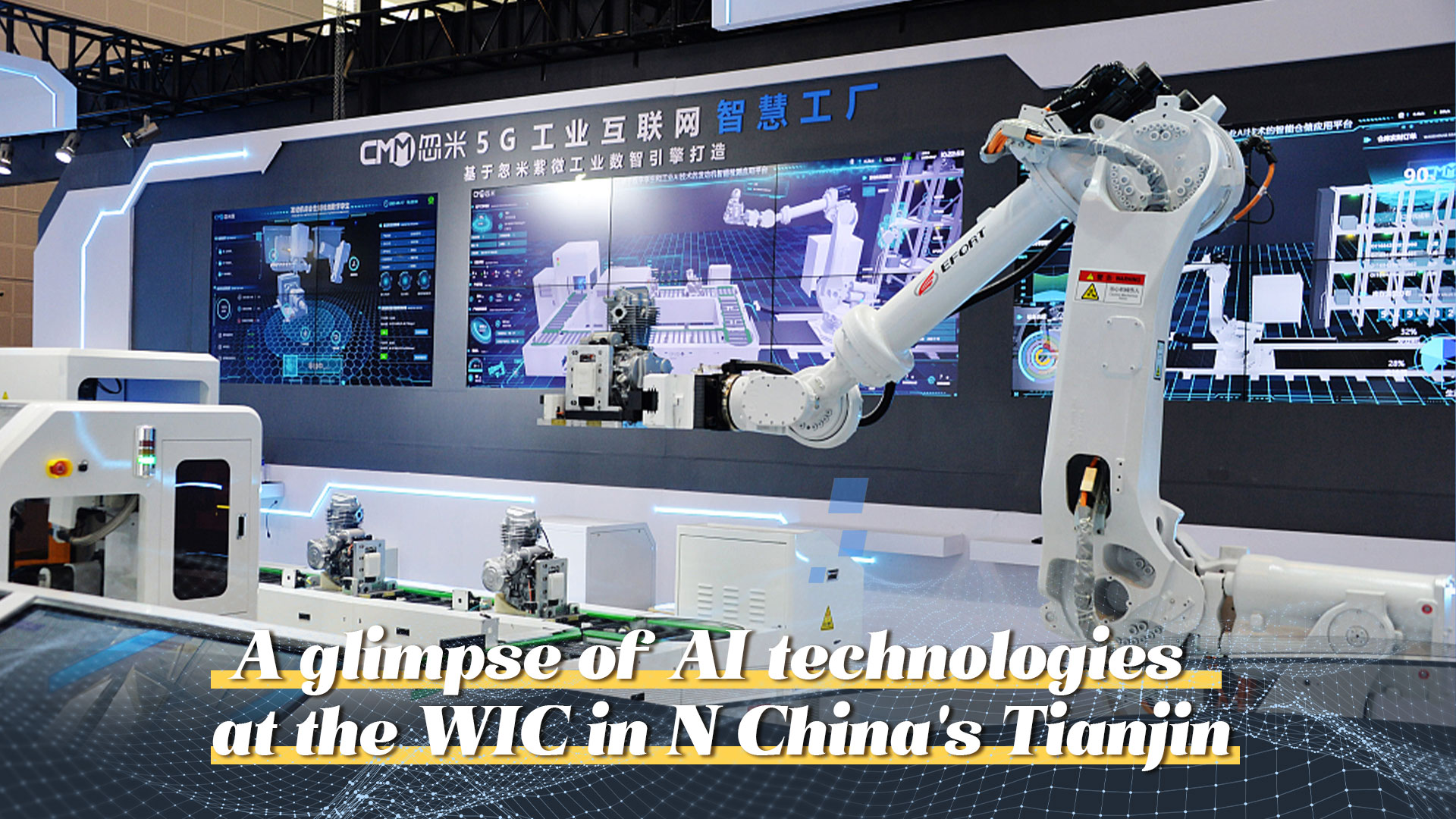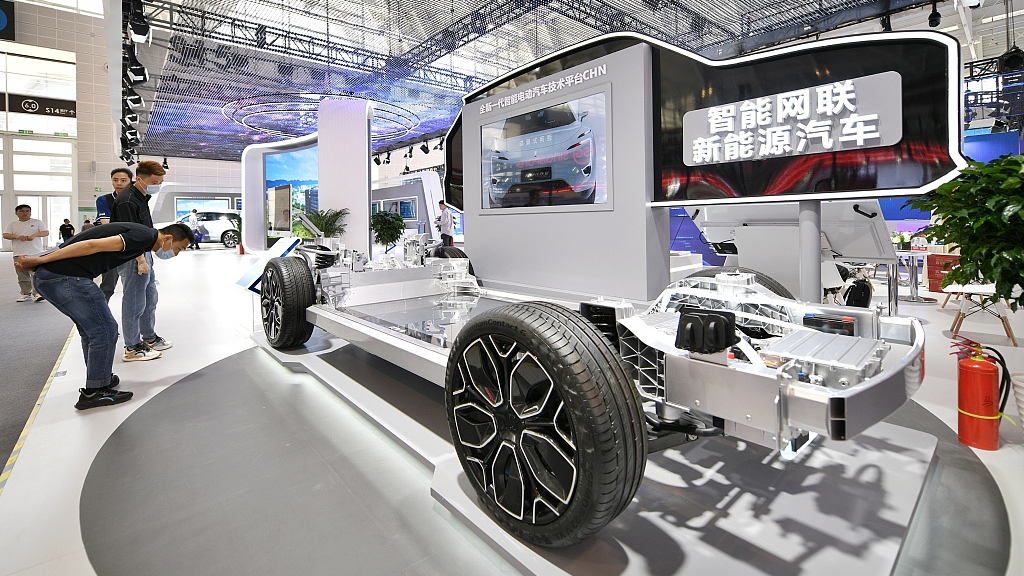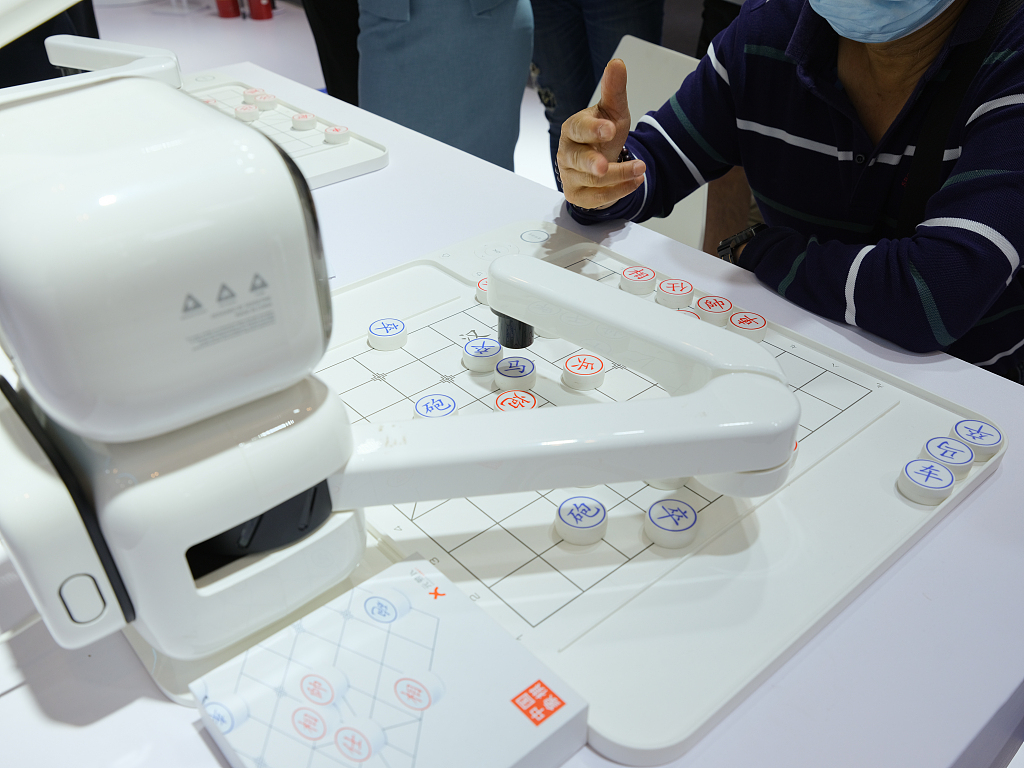02:38

The seventh World Intelligence Congress (WIC), a major artificial intelligence (AI) event in China, kicked off on Thursday in north China's Tianjin Municipality, focusing on topics such as intelligent connected vehicles, artificial general intelligence and brain-computer interfaces.
China's AI industry is making steady progress in technological innovation, industrial ecology and integrated application, with the scale of its core sectors reached 508 billion yuan ($72.5 billion) in 2022, an increase of 18 percent year on year, according to China Academy of Information and Communications Technology.

A new generation of intelligent electric vehicle technology at the seventh World Intelligence Congress in north China's Tianjin Municipality, May 18, 2023. /CFP
A new generation of intelligent electric vehicle technology at the seventh World Intelligence Congress in north China's Tianjin Municipality, May 18, 2023. /CFP
The WIC exhibition featured technologies and products related to generative AI, 5G plus industrial internet.
Generative AI on display, apart from iFLYTEK's SparkDesk, included a generative language model developed by a homegrown intelligent speech and AI company, the National Supercomputing Center of Tianjin.
Also on show were examples of how the integration of 5G plus industrial internet has deepened in supporting multiple scenarios of the manufacturing industry, including those used in inspection and transport.

A visitor plays chess with a robot at the seventh WIC in Tianjin, May 18, 2023. /CFP
A visitor plays chess with a robot at the seventh WIC in Tianjin, May 18, 2023. /CFP
Nearly 500 enterprises participated in the exhibition, including 350 intelligent technology enterprises and 51 research institutions and universities, according to the WIC.
The exhibition presented music, literature, art and other fields through AI, 3D, metaverse and other technologies to break time and space restrictions, allowing participants an immersive experience.
An intelligent driving challenge and four other competitions were also held during the congress.
(Cover image via CFP, designed by Xing Cheng)